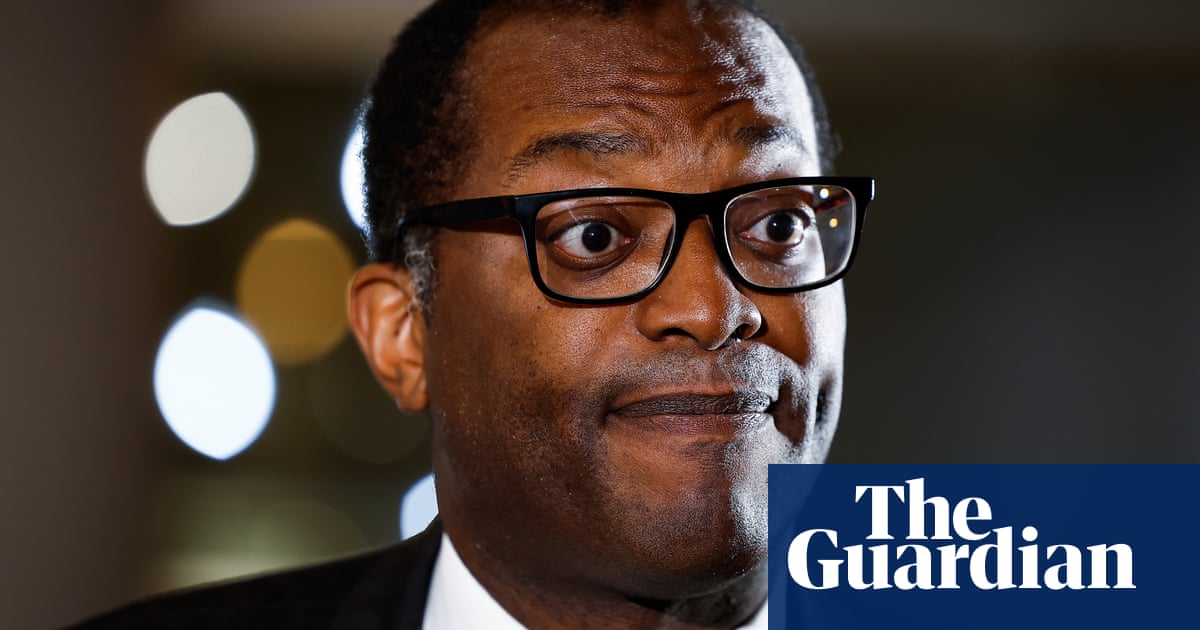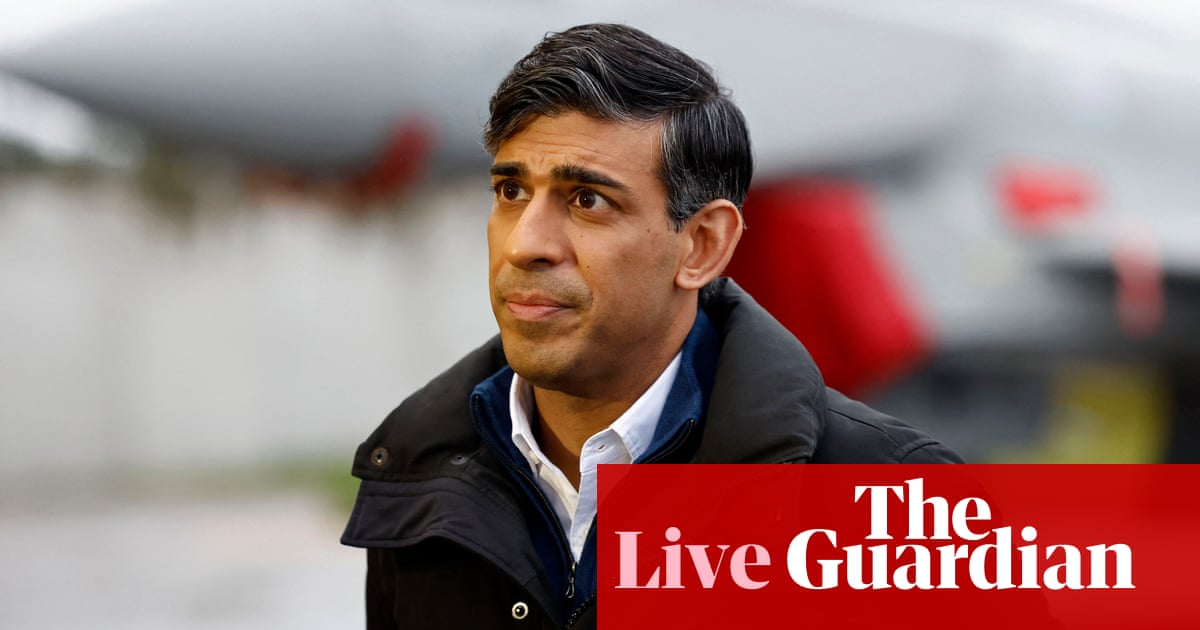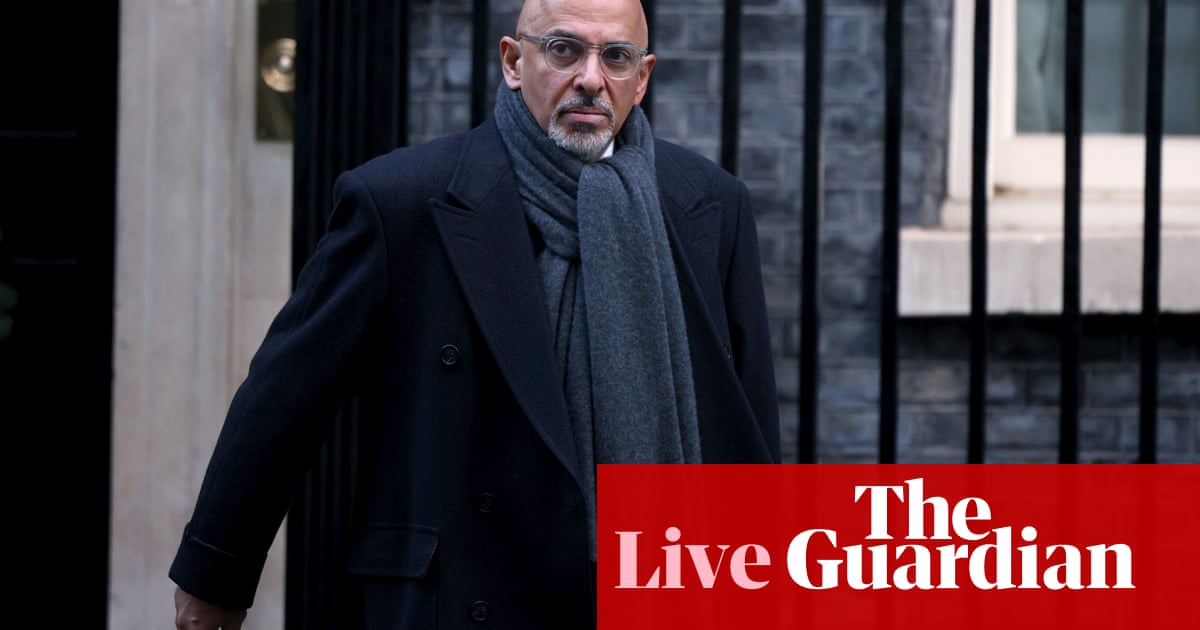
Kwarteng tones down his anti-fracking rhetoric after No 10 hints U-turn may be imminent
In the Commons Kerry McCarthy (Lab) told Kwasi Kwarteng that he had twice ignored questions about the government’s policy on fracking. She invited him to have another go.
This time Kwarteng did address the issue. He said he was energy minister at the time the government set out its position on fracking. He went on:
The government has always been clear that we will take a precautionary approach that supports shale gas exploration if it can be done in a safe and sustainable way. That remains our position. And we will be evidence-led.
This is what we wrote and said in 2019, and we are still committed to that.
That is quite different from the tone Kwarteng adopted in an article in the Mail on Sunday at the weekend (quoted by Jim Pickard at 2.21pm). This is what he wrote then.
Onshore fracking is very different. Those calling for its return misunderstand the situation we find ourselves in.
First, the UK has no gas supply issues. And even if we lifted the fracking moratorium tomorrow, it would take up to a decade to extract sufficient volumes – and it would come at a high cost for communities and our precious countryside.
Second, no amount of shale gas from hundreds of wells dotted across rural England would be enough to lower the European price any time soon. And with the best will in the world, private companies are not going to sell the shale gas they produce to UK consumers below the market price. They are not charities, after all.
Early evening summary
Britain is planning to supply Starstreak anti-aircraft weapons and “a small consignment” of Javelin anti-tank missiles to Ukraine as Russian forces close in on Kyiv to the east, Ben Wallace, the defence secretary has said.
Keir Starmer has accused Boris Johnson of presiding over a “failed energy policy” that is resulting in rocketing bills, as he called for the government to invest in nuclear and renewable energy sources and insulate homes to reduce reliance on Russian oil and gas.
Downing Street has refused to rule out lifting the government’s moratorium on fracking, saying “all options” would be considered as the government considered how to end the UK’s reliance on Russian energy. (See 2.10pm.) The briefing seemed to embarrass Kwasi Kwarteng, the business secretary, who was giving a statement to MPs an hour or so later and who recently dismissed fracking as a solution to the UK’s energy problems. (See 2.39pm.)
Johnson has described the Russian attack on a children’s hospital in Mariupol as “depraved”.
Liz Truss, the foreign secretary, has said the west must go “further and faster” in its response to the Russian invasion of Ukraine, saying victory for President Putin would have “terrible implications for European and global security”. In a press conference in Washington with Antony Blinken, the US secretary of state, she said:
We know from history that aggressors only understand one thing, and that is strength.
We know that if we don’t do enough now, other aggressors around the world will be emboldened.
And we know that if Putin is not stopped in Ukraine, there will be terrible implications for European and global security. We would be sending a message that sovereign nations can simply be trampled on.
So we must go further and faster in our response.
That is all from me for today. But our Ukraine coverage continues on our global live blog. It’s here.
These are from my colleage Dan Sabbagh, the Guardian’s defence editor, on the briefing from western sources earlier about the risk of Russia using chemical weapons. (See 4.47pm.)
Q: If the plan is for Putin to fail, are you trying to encourage oligarchs to overthrow him?
Truss says the objective is for Putin to fail in Ukraine. His unwarranted act of aggression must not succeed. And the purpose of sanctions is to debilitate the Russian economy, she says.
She says one purpose of the sanctions is to ensure that the technology needed by Russia to develop its military-industrial complex is not available.
Blinken says the west has tried to provide “off ramps” (exit routes) to Putin. But he has not taken them, he says.
Putin is now laying waste to Ukraine.
If he wants to impose a puppet regime, it is obvious Ukrainians will never accept that. And if he tries to prop that up militarily, it will be a long, bloody mess.
Blinken says the US is doing all it can to ensure that the Ukrainians can defend themselves, to put pressure on Putin to change course, and to help those suffering.
He says he is convinced Putin will fail, and Russia will suffer a strategic defeat.
Truss says the attack on a children’s hospital in Mariupol is reckless and abhorrent.
Q: What more can the US and the UK do? Are you open to a no-fly zone being set up?
Truss says the UK has been supplying Ukraine with defensive weapons. Today Ben Wallace, the defence secretary, announced that an air-defence system would be supplied.
On a no-fly zone, she says this would lead to confrontation with Russia.
Blinken says he agrees.
Liz Truss says since the end of the cold war the west has taken its eye off the ball. It must never let down its guard again.
She says Nato is being strengthened, and the US and the UK are encouraging other countries to step up their defence spending.
She says the war in Ukraine is about freedom. Putin must fail, she says.
Antony Blinken opens the press conference, saying he has been working with Liz Truss not just on Ukraine, but on a range of issues. On Ukraine there has been “extraordinary close coordination”.
He says that, in almost 30 years working in foreign policy, he cannot remember seeing “such unity in the transatlantic relationship, both in policy and in principle”.
Western officials have warned of their “serious concern” that Vladimir Putin could use chemical weapons in Ukraine to commit further atrocities during the invasion, PA Media reports. PA says:
Their assessment was that an “utterly horrific” attack on the capital of Kyiv could come as Russian forces overcome the logistical issues suspected of delaying their attacks.
The warnings came on Wednesday as the Ukrainian president, Volodymyr Zelenskiy, said children were among those under the wreckage of a “direct strike” at a maternity hospital in the southern port city of Mariupol.
An official said: “I think we have good reason to be concerned about possible use of non-conventional weapons, partly because of what we have seen happen in other theatres.
“As I’ve mentioned before, for example, what we’ve seen in Syria, partly because we’ve seen a bit of setting the scene for that in the false flag claims that are coming out, and other indications as well.
“So it’s a serious concern for us.”
Liz Truss"s press conference in Washington with Antony Blinken
Liz Truss, the foreign secretary, will shortly be holding a press conference at the state department in Washington with Antony Blinken, the US secretary of state.
I will be focusing mainly on what Truss has to say, and on the UK-related aspects of the press conference. My colleague Joanna Walters, who is writing US Politics Live, will be focusing more on the US aspects. Her blog is here.
The Cardiff Philharmonic Orchestra has removed the Russian composer Tchaikovsky from its programme of upcoming concerts due to the current conflict in Ukraine, saying it would be “inappropriate at this time”, PA Media reports.
Nicola Sturgeon, Scotland’s first minister, has said that she has asked the UK government to let Scotland run its own refugee programme for Ukrainians. Immigration policy is a matter reserved for Westminster, but Sturgeon said she had asked ministers in London if Scotland could run its own programme. She said:
We have put a proposition to the UK government about how the Scottish government, working with councils, the Refugee Council here, would effectively run a refugee programme, that we would match people with accommodation and provide the support.
The family route ... is the only route open right now for Ukrainians, [and] is proving horrendously bureaucratic.
The other route they hope to open is the community sponsorship route. It cannot be allowed to be mired in that bureaucracy.
But what we’re saying to the UK government is make the requirements minimal, allow them to be done in this country, and allow the Scottish government working with agencies here to deliver that on the ground.
Sturgeon said the obstacles being put in the way for Ukrainain refugees using the family scheme (the only special visa scheme currently open to them) were “unconscionable”. She cited one example:
I have heard from one Ukrainian living here in Scotland right now about how a family member who has fled Ukraine, managed – after an arduous journey – to get to Poland and one of the things they have had to prove is that they were living in Ukraine before a certain date. This person left with nothing. That is just beyond acceptable.
Lord Agnew, who resigned as a Treasury minister over what he described as his own government’s lax approach to tackling fraud, told the Treasury committee this afternoon that as a minister he witnessed “a weak system which allows money to fall into the laps of crooks”. He said:
I believe very strongly that the taxpayer deserves that the government should use their money wisely and an issue like the management of countering fraud is a cross-party issue.
I don’t think there is anybody who would condone a weak system which allows money to fall into the laps of crooks, and that’s what I saw happening.
In any of these situations you try and bring about change from inside the tent but you get to a point where that just doesn’t seem to be working.












